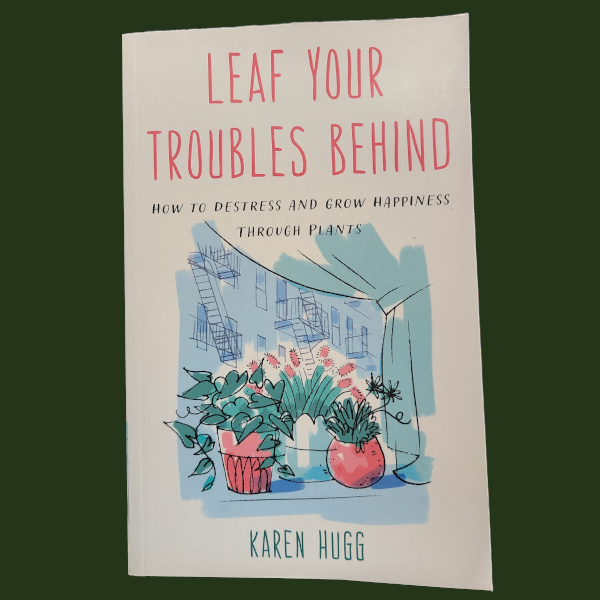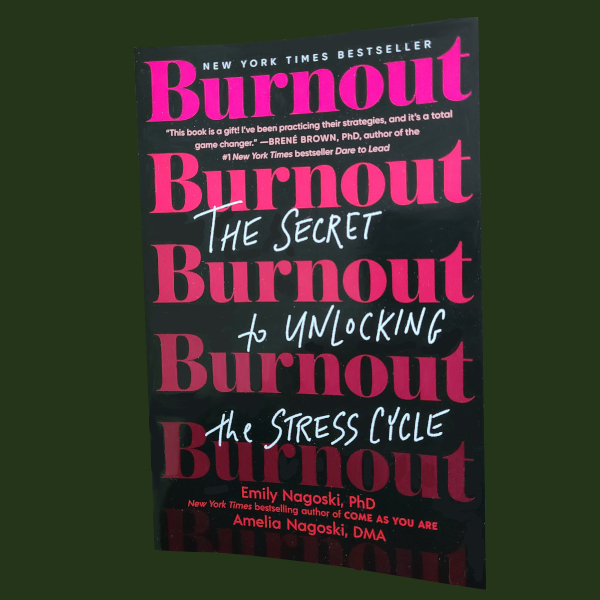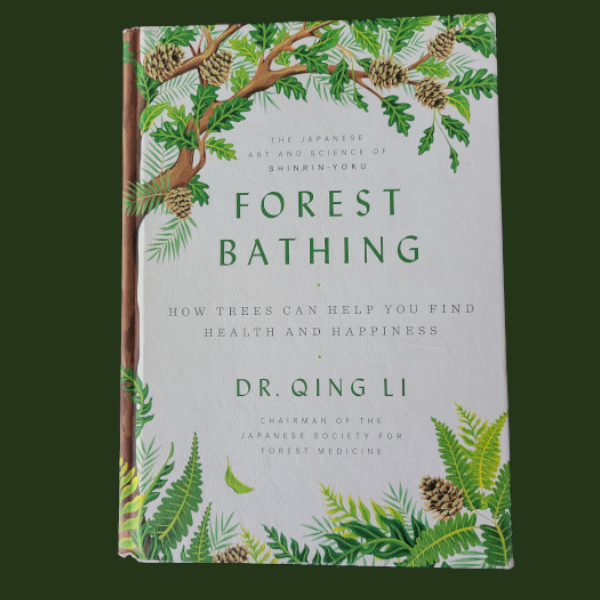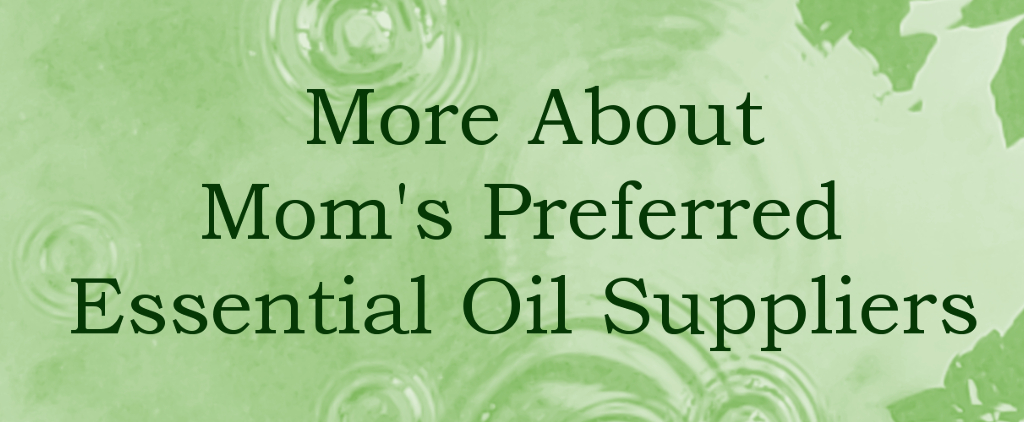
Beat Burnout: Finding Support for Recovery
Burnout is a word tossed around casually these days, but the reality is far from it. Statistics show a worrying trend—a 2022 survey found that 57% of American workers report experiencing moderate burnout symptoms. Of those who reported intense burnout symptoms, a whopping 89% also experience other mental health symptoms, including depression, anxiety, and sleep disturbance.[1] And burnout extends beyond the workplace, with familial and financial pressures contributing to symptoms.
So, what’s the answer? How can we manage these symptoms before they become chronic?
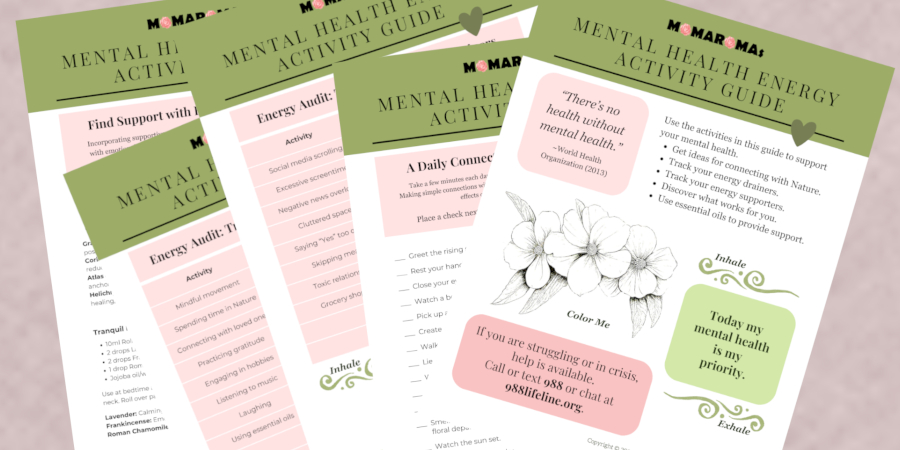
It’s time for a Mental Health Check-in!
Download your
FREE Mental Health Energy Activities Guide to begin your journey toward a more vibrant day!
[This post contains affiliate links. If you make a purchase through one of these links I may earn a commission. This does not impact your price. For more information, please see our disclosure.]
In this Post:
What is Burnout?
Burnout is a state of emotional, physical, and mental exhaustion caused by prolonged or excessive stress, characterized by:
- Exhaustion: Feeling constantly drained and depleted
- Cynicism: Feeling detached from your work or life, with predominant negative thinking
- Reduced Efficacy: Feeling an inability to contribute or a lack of accomplishment

These symptoms can stem from various causes, including:
- Work Overload: Feeling overwhelmed by too many tasks, unrealistic deadlines, and a lack of control
- Lack of Support: Feeling isolated or unsupported by colleagues or superiors, or family
- Work-Life Imbalance: Difficulty separating work from personal life, leading to constant stress
Contrary to information spread across the web, recovering from burnout is not simply a matter of better self-care. In fact, this statement puts even more pressure on the person experiencing burnout, insinuating that they are responsible for their symptoms. This is simply untrue.
Self-care is an important aspect of burnout management. However, if symptoms do not improve, please seek the advice of a medical professional.
Self-Care for Burnout Symptoms Management
Prioritizing self-care is the first step in managing burnout symptoms. Here are some ways to prioritize self-care:
- Set Boundaries. Learn to say no and delegate tasks—yes, I know, easier said than done.
- Get to Know Your Limits. Becoming familiar with your natural energy reserves allows you to better allocate your energies. One excellent way to visualize this concept is called Spoon Theory.
(More on: Spoon Theory & Burnout)
- Disconnect. Schedule breaks and avoid checking work emails outside of work hours—seriously put the phone away, turn off the monitor, and give your brain and eyes a rest.
- Experience Boredom. Next time you don’t have anything to do, simply don’t do anything, even if it’s for just 5 minutes. We don’t need to be tuned-in all the time.
- Get “Better” Sleep. Aim for 7-8 hours of quality sleep each night—essential oils and herbal tea can help with this. (Try my fan-favorite Better than Basic Chamomile tea recipe.)
- Create a Morning Routine. A morning routine that includes uplifting essential oils can help you start the day with a positive energy. Because it’s often difficult to blend essential oils when all you want to do is hit the snooze button, get your diffuser ready before bed. Then all you have to do upon wakening is hit the diffuser button! (Try Yawn Away and Morning Lemon Aid.)
- Establish Healthy Habits. Everyone always says to eat better and exercise. My suggestion is simply enjoy “the rainbow” of fruits and veggies and at least a short walk (without your device) every day.
- Connect with Yourself. Unplug, spend time in Nature. This can mean a local park or walking trail, your backyard, or a patio container garden. Even a short time in Nature is better than no time. Whatever you do to connect with yourself, do it daily.
- Connect with Others. Find and foster those relationships that nourish your soul. These are the people that will provide the most support at your lowest points.
Essential Oils to Ease Burnout Symptoms
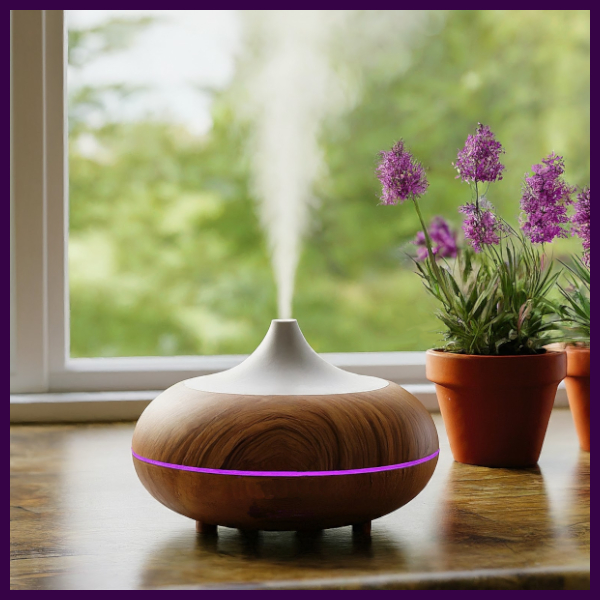
Because essential oils have the ability to influence mood, energy levels, and relaxation, they are powerful additions to your burnout recovery (or prevention) toolbox. Here’s how essential oils can help ease burnout symptoms:
- They Help Reduce Stress. Essential oils for stress reduction include Geranium, Sweet Basil, and Lime.
- They Uplift the Spirits. Uplifting essential oils include Grapefruit, Spearmint, and Eucalyptus.
- They Boost Self-Confidence. Essential oils that support confidence include Virginian Cedarwood, Tea Tree, and Blue Tansy.
- They Enhance Motivation. Essential oils for motivation include Ginger, Frankincense, and Thyme.
- They Promote Focus. Essential oils for focus include Rosemary, Peppermint, and Lemon. (Try the Morning Lemon Aid blend.)
- They Improve Sleep Quality. Sleep-supporting essential oils include Lavender, Roman & German Chamomile, and Valerian.
🌺See my Recommended Suppliers below
(More on: Essential Oils for Burnout)
Forest Bathing: A Breath of Fresh Air for Burnout

Forest bathing, also known as “shinrin-yoku,” is the practice of immersing yourself in Nature and consciously engaging all your senses. This simple practice has been shown to be remarkably effective in combating burnout symptoms. Here’s how:
- It Reduces Stress. Spending time amongst the trees lowers stress hormones, like cortisol, and promotes feelings of relaxation.
- It Improves Mood. Nature exposure can boost mood and feelings of well-being by increasing serotonin and dopamine production in the brain.
- It Refreshes & Energizes. Exposure to the negative ions that are abundant outdoors (especially in forests and near water) revitalizes mental energy and promotes a sense of well-being.
- It Enhances Focus. Immersing yourself in nature can improve cognitive function and reduce mental fatigue, making it easier to focus and be present.
Incorporating forest bathing into your routine can provide a much-needed mental and emotional break from the constant demands of daily life.
(More on: Forest Bathing for Mental Health)
Persistent Burnout Symptoms and Chronic Fatigue Syndrome
While they are two distinct conditions, both can leave you feeling drained and energy depleted. Here is a breakdown to help you better understand burnout and Chronic Fatigue Syndrome (CFS).
| Burnout | Chronic Fatigue Syndrome | |
|---|---|---|
| Cause | Prolonged or excessive stress, often work-related, but not necessarily | Exact cause is hotly debated; believed to be a combination of factors, including viral infections, immune system dysfunction, hormonal imbalance, and stress system dysfunction |
| Symptoms | Emotional exhaustion, cynicism towards work/life, reduced sense of accomplishment, irritability, gastrointestinal upset, difficulty concentrating, sleep disturbance, recurrent headaches | Extreme fatigue that worsens with exertion (post-exertional malaise), muscle and joint pain, sore throat, tender lymph nodes, difficulty concentrating (brain fog), sleep disturbance, recurrent headaches |
| Risk Factors | Lack of confidence in one’s ability to perform tasks or manage difficult situations, persistent focus on failures | Lack of confidence in one’s ability to perform tasks or manage difficult situations, persistent focus on failures |
| Key Points | • Develops gradually over time in response to chronic stress • Symptoms primarily affect emotional and mental well-being • Usually improves with stress management, self-care, and lifestyle changes | • Can develop suddenly or gradually • Symptoms often encompass both physical and mental aspects • Treatment focuses on managing symptoms, reducing stress, self-care, and improving quality of life |
Evidence indicates that long-term, persistent burnout symptoms may contribute to the development of Chronic Fatigue Syndrome.[3] This suggests that self-care, stress management, and confidence building are important for the majority, if not all, of us to take to heart.
A combination of self-care practices, that include aromatherapy and forest bathing, can be a powerful tool in burnout prevention and recovery.

References
- Aflac. (2023 Oct 18). Workforce retention on the line as employers battle employee burnout. PR Newswire. https://www.prnewswire.com/news-releases/workforce-retention-on-the-line-as-employers-battle-employee-burnout-301960539.html
- Moyer, M.W. (2022 Feb 15). Your body knows you’re burned out. The New York Times. https://www.nytimes.com/2022/02/15/well/live/burnout-work-stress.html
- Jameson, D. (2016). Persistent burnout theory of Chronic Fatigue Syndrome. Neurosci Med, 7:66-73. https://doi.org/10.4236/nm.2016.72008
📌Mental Energy & Wellness Pins

Mom’s Beat the Burnout Shopping List
Favorite Books About & For Burnout Management
- Burnout: The Secret to Unlocking the Stress Cycle, by Emily Nagoski, PhD & Amelia Nagoski, DMA—written for women by women, highly recommend (Amazon)
- Leaf Your Troubles Behind, by Karen Hugg—how a garden, big, small, or even container, can help reduce your stress and enhance your well-being (Amazon)
- Your Time to Thrive, but Marina Khidekel—how making small changes, “microsteps,” can have a big impact on well-being (Amazon)
- The Healing Magic of Forest Bathing, by Julia Plevin—a guide book to forest bathing, with activities to inspire your connection with Nature (Amazon)
- Forest Bathing, by Qing Li, MD PhD—the “definitive” book on shinrin-yoku and connecting with Nature for well-being (Amazon)
Favorite Essential Oil Suppliers
- Aromatics International for ethically wildcrafted, organically sourced, and Certified Organic essential oils (Mom’s AI favorites)
- Plant Therapy for Certified Organic and sustainably sourced, conventional essential oils (Mom’s PT favorites)
- Also at Plant Therapy on Amazon
- Edens Garden (on Amazon) for sustainably sourced, conventional essential oils (Mom’s EG favorites)
This information has not been evaluated by the Food and Drug Administration and is not intended to diagnose, treat, cure, or prevent any disease. It is for educational purposes only.
All recipes provided are for personal use and are not designed for re-sale or large-scale manufacturing.
Please consult your doctor, naturopath, herbal practitioner, or other qualified health professional for medical advice and before starting any herbal regimen, particularly if you are pregnant or nursing, have any existing medical conditions, or are taking any medications.
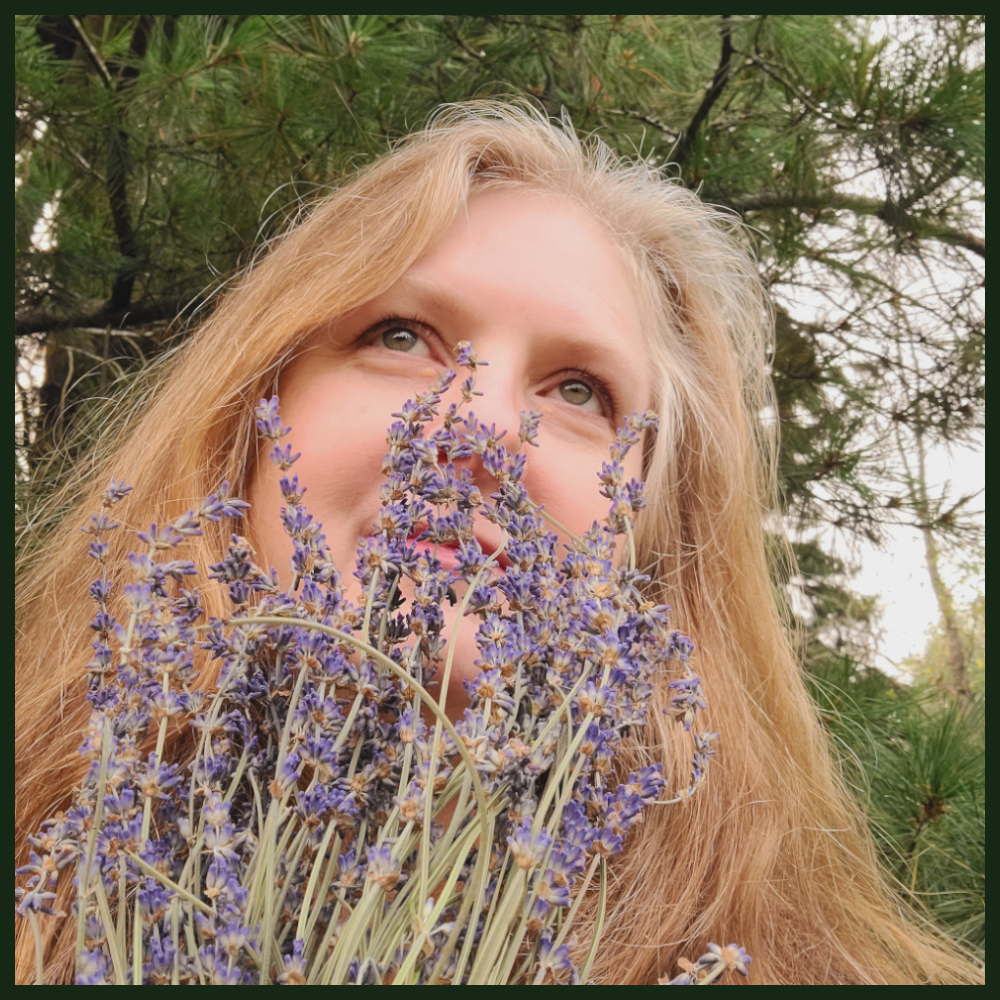
Chris P | Author, Certified Aromatherapist, Natural Skin Care Formulator
Chris (“Mom”) enjoys formulating bespoke aromatherapy, skin care, and herbal products to support her family, pets, friends, and clients. She also loves experimenting with recipes in the kitchen. An avid reader, writer, and lifetime learner, Chris enthusiastically explores research rabbit holes and then writes about her discoveries.💚 (Learn more >>)



